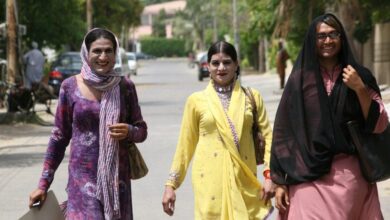Govt. urged to improve human rights conditions

Human rights activists have welcomed the pledge made by Prime Minister Shehbaz Sharif to address violence against minorities including the practice of forced faith conversions, and establish a statutory national commission for minorities rights. They have urged the government to translate commitment to actions, and introduce serious policy reforms to protect the rights of religious minorities.
In a statement, the chairman of the Voice for Justice, Joseph Jansen said that Forced conversion is a gross violation of the right to religious freedom. Due to the non-consideration of this issue, Pakistan is counted among those countries where serious violations of religious freedom are tolerated. He noted that seven united nations mandate holders focusing on themes including; minorities issues, religious freedom, human trafficking, discrimination and violence against women, and sexual exploitation of children have expressed their concerns in a joint communication sent to the government of Pakistan, and highlighted cases involving child victims such as; Zarvia Pervaiz, Saba Nadeem, Chashman Kanwal, etc. The government is urged to take measures to expand the protection of minority girls from forced marriage and conversion, including a re-examination of the Prohibition of Forced Conversions Bill (2021) and improving enforcement of existing provisions of the Pakistan Penal Code to prevent harmful practices such as child and forced marriage as well as to protect the right to marry with free and full consent.
A women’s rights activist, Nadia Stephen observed that top political leaders including Shehbaz Sharif, Bilawal Bhutto Zardari, Imran Khan and Nawaz Sharif had termed forced conversions an un-Islamic act, however, sadly no substantial measures were introduced despite their commitment to introduce legal and administrative safeguards against forced conversions. She hoped that the laws committed by the prime minister are taken up and passed by the legislative bodies.
A human rights defender, Ashiknaz Khokhar said that there are structural and systemic challenges to religious freedom, requiring the government authorities’ urgent attention and serious actions to improve religious freedom conditions by addressing the plight of communities facing hatred, intolerance, discrimination, and violence on the basis of religion, strengthening laws and policies and holding perpetrators for abuses accountable. He added that the National Commission for Minorities badly failed over and over again, due to a lack of autonomy, capacity, resources, and powers to remedy minority rights violations. The body will remain ineffective unless it is established by an act of parliament.
Ilyas Samuel said that it is sad that religious and political groups have been denying the presence of forced faith conversions in the country, and have been opposing legislation to criminalize the offense of forced conversions, giving an unjustified excuse that it may undermine Muslims’ right to religious freedom to convert non-Muslims to Islam. He added that violations of religious freedom are abuses of fundamental human rights that are tied inextricably to societal well-being, which must never go unchallenged. The government needs to adopt laws and policies to protect minorities’ rights to implement the right to equality, non-discrimination, and religious freedom guaranteed in Article 20 and Article 25 of the constitution of Pakistan, and should not shy away from taking the right step to improve human rights conditions in the country.var /*674867468*/





